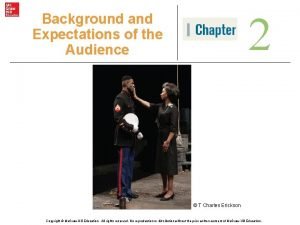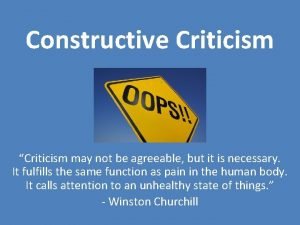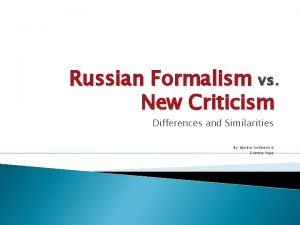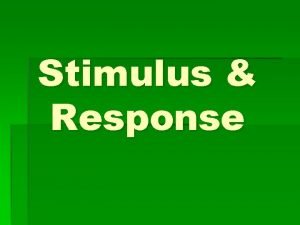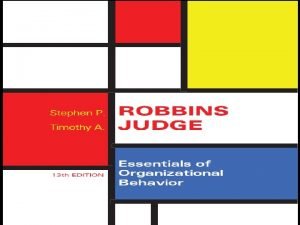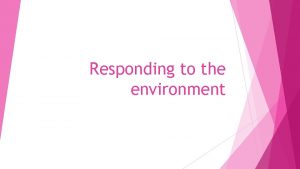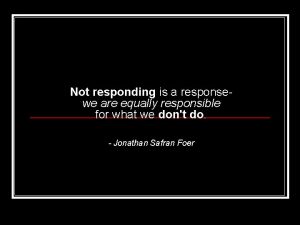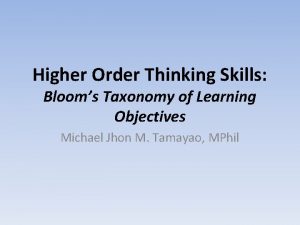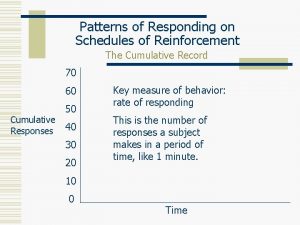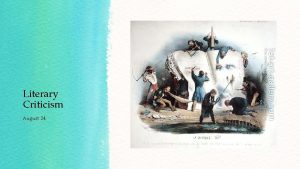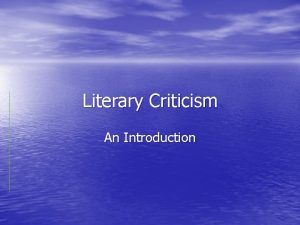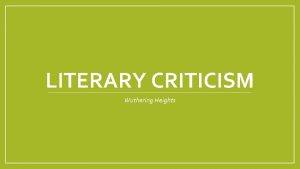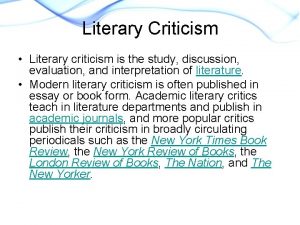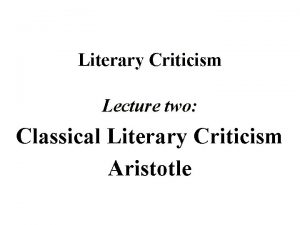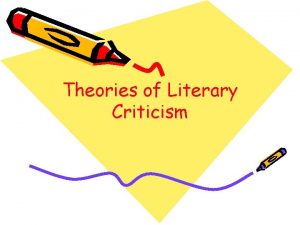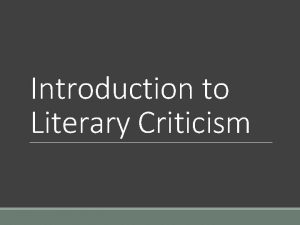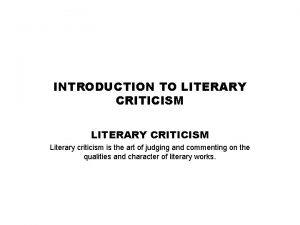LITERARY CRITICISM LITERARY CRITICISM When responding to a









- Slides: 9

LITERARY CRITICISM

LITERARY CRITICISM When responding to a work of literature, it is important to be able to back up your opinions intelligently. Some of the literary elements you can use to analyze literature include: Character Imagery Plot Objectivity Theme Sources Figurative Language Accuracy

RESPONDING TO LITERATURE • A response to literature should be focused and organized. • The author should restate and answer the question when responding to literature. • The response should also provide supporting details and examples from the text.

WILLING SUSPENSION OF DISBELIEF Willing Suspension of Disbelief is a formula for justifying the use of fantasy or non-realistic elements in literature. The idea was put forth by the poet and philosopher, Samuel Taylor Coleridge, who suggested that if a writer could create characters who were interesting and believable in a fantasy story, the reader would suspend his or her disbelief. In order to enjoy a fantasy or unbelievable story, the reader must be willing to accept that the fantasy elements are true, within the confines of that story.

CHARACTER When responding to literature, some questions you should consider about characters include: v Are the characters believable? v Are the characters realistic? v Are the characters’ motivations clear? v Are the characters anything like people you have met or other characters you have encountered? v Did you identify with any of the characters? v Did you like the characters?

PLOT When responding to literature, some questions you should consider about plot include: v Did the writer hold your attention? v Was the story believable, within the context of the story? v Was the plot easy to understand?

THEME When responding to literature, some questions you should consider about theme include: v What did the story mean? v Did the story say something important about life? v Did the story say something meaningful to you? v Did the story make you think? v Was theme predictable and dull?

POETRY When responding to poetry, you should consider literary elements, such as: v What type of figurative language did the author use? v What type of imagery did the author include? v Were there sound effects included in the text? v What rhyme scheme, meter, and rhythm were used by the author? v How did these literary devices affect your understanding and enjoyment of the text?

NON-FICTION When responding to non-fiction, you should consider literary elements, such as: v How objective was the author? v Did the author include subjective details? v Did the author use and refer to primary sources? v Were the details in the text accurate?
 Descriptive criticism vs prescriptive criticism
Descriptive criticism vs prescriptive criticism Historical criticism definition
Historical criticism definition Learn something
Learn something Differences between formalism and new criticism
Differences between formalism and new criticism Responding to internal stimuli
Responding to internal stimuli Responding to globalization in ob
Responding to globalization in ob Responding to the environment
Responding to the environment Not responding is a response
Not responding is a response Remember understand apply analyze evaluate create
Remember understand apply analyze evaluate create Scalloped pattern of responding
Scalloped pattern of responding
